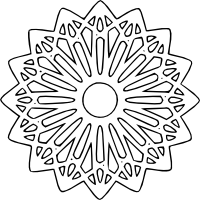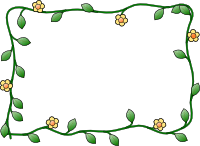Associations to the word «Pattern»
Noun
- Diffraction
- Inheritance
- Antenna
- Behavior
- Radiation
- Activation
- Migration
- Consumption
- Color
- Interaction
- Camouflage
- Pattern
- Aston
- Coloration
- Breakout
- Weave
- Embroidery
- Woven
- Repeating
- Stitch
- Knitting
- Fingerprint
- Circulation
- Plumage
- Quilt
- Stripe
- Grid
- Tern
- Swirl
- Disorder
- Motif
- Dipole
- Gene
- Spiral
- Fragmentation
- Forewing
- Variability
- Regularity
- Dot
- Oscillation
- Interference
- Spacing
- Neuron
- Reversal
- Electron
- Recognition
Adjective
- Patterned
- Consistent
- Typical
- Complicated
- Geometric
- Floral
- Intricate
- Geometrical
- Rhythmic
- Repetitive
- Matching
- Predictable
- Spatial
- Concentric
- Directional
- Symmetrical
- Sequential
- Weaving
- Behavioral
- Neural
- Mottled
- Phonological
- Contrasting
- Branching
- Retinal
- Mediterranean
- Decorative
- Recurrent
- Syntactic
- Temporal
- Distinctive
- Neuronal
- Swirling
- Abnormal
- Recognizable
- Cortical
- Irregular
- Mosaic
- Seasonal
- Etched
- Spiral
- Migratory
- Embroidered
- Morphological
- Melodic
- Characteristic
- Ornamented
Pictures for the word «Pattern»
Wiktionary
PATTERN, noun. Model, example.
PATTERN, noun. Something from which a copy is made; a model or outline. [from 14th c.]
PATTERN, noun. Someone or something seen as an example to be imitated; an exemplar. [from 15th c.]
PATTERN, noun. (now rare) A copy. [from 15th c.]
PATTERN, noun. (now only numismatics) A sample; of coins, an example which was struck but never minted. [from 16th c.]
PATTERN, noun. A representative example. [from 16th c.]
PATTERN, noun. (US) The material needed to make a piece of clothing. [from 17th c.]
PATTERN, noun. (textiles) The paper or cardboard template from which the parts of a garment are traced onto fabric prior to cutting out and assembling.
PATTERN, noun. (metalworking) (dated) A full-sized model around which a mould of sand is made, to receive the melted metal. It is usually made of wood and in several parts, so as to be removed from the mould without damage.
PATTERN, noun. (computing) A text string containing wildcards, used for matching.
PATTERN, noun. A design, motif or decoration, especially formed from regular repeated elements. [from 16th c.]
PATTERN, noun. A naturally-occurring or random arrangement of shapes, colours etc. which have a regular or decorative effect. [from 19th c.]
PATTERN, noun. The given spread, range etc. of shot fired from a gun. [from 19th c.]
PATTERN, noun. A particular sequence of events, facts etc. which can be understood, used to predict the future, or seen to have a mathematical, geometric, statistical etc. relationship. [from 19th c.]
PATTERN, noun. (linguistics) An intelligible arrangement in a given area of language.
PATTERN, verb. To apply a pattern
PATTERN, verb. To make or design (anything) by, from, or after, something that serves as a pattern; to copy; to model; to imitate.
PATTERN, verb. To follow an example
PATTERN, verb. To fit into a pattern
PATTERN, verb. (transitive) To serve as an example for.
PATTERN BALDNESS, noun. A gradual loss of hair, common in humans, especially males.
PATTERN BOARD, noun. A pole mounted steel board, usually whitewashed, used by shotgunners to assess the spread of the shot.
PATTERN FORMATION, noun. (biology) The mechanism in developing tissue by which originally similar cells acquire diverse forms and functions by coordinated cell fate control.
PATTERN LANGUAGE, noun. (architecture) (design) (software) (design) A structured method of describing good design practices within a field of expertise.
PATTERN LANGUAGES, noun. Plural of pattern language
PATTERN MAKER, noun. Alternative spelling of patternmaker
PATTERN MATCHING, noun. (computer science) the act of checking some sequence of tokens for the presence of the constituents of a pattern
Dictionary definition
PATTERN, noun. A perceptual structure; "the composition presents problems for students of musical form"; "a visual pattern must include not only objects but the spaces between them".
PATTERN, noun. A customary way of operation or behavior; "it is their practice to give annual raises"; "they changed their dietary pattern".
PATTERN, noun. A decorative or artistic work; "the coach had a design on the doors".
PATTERN, noun. Something regarded as a normative example; "the convention of not naming the main character"; "violence is the rule not the exception"; "his formula for impressing visitors".
PATTERN, noun. A model considered worthy of imitation; "the American constitution has provided a pattern for many republics".
PATTERN, noun. Something intended as a guide for making something else; "a blueprint for a house"; "a pattern for a skirt".
PATTERN, noun. The path that is prescribed for an airplane that is preparing to land at an airport; "the traffic patterns around O'Hare are very crowded"; "they stayed in the pattern until the fog lifted".
PATTERN, noun. Graphical representation (in polar or Cartesian coordinates) of the spatial distribution of radiation from an antenna as a function of angle.
PATTERN, verb. Plan or create according to a model or models.
PATTERN, verb. Form a pattern; "These sentences pattern like the ones we studied before".
Wise words
Always aim at complete harmony of thought and word and deed.
Always aim at purifying your thoughts and everything will be
well.




.png)
.png)